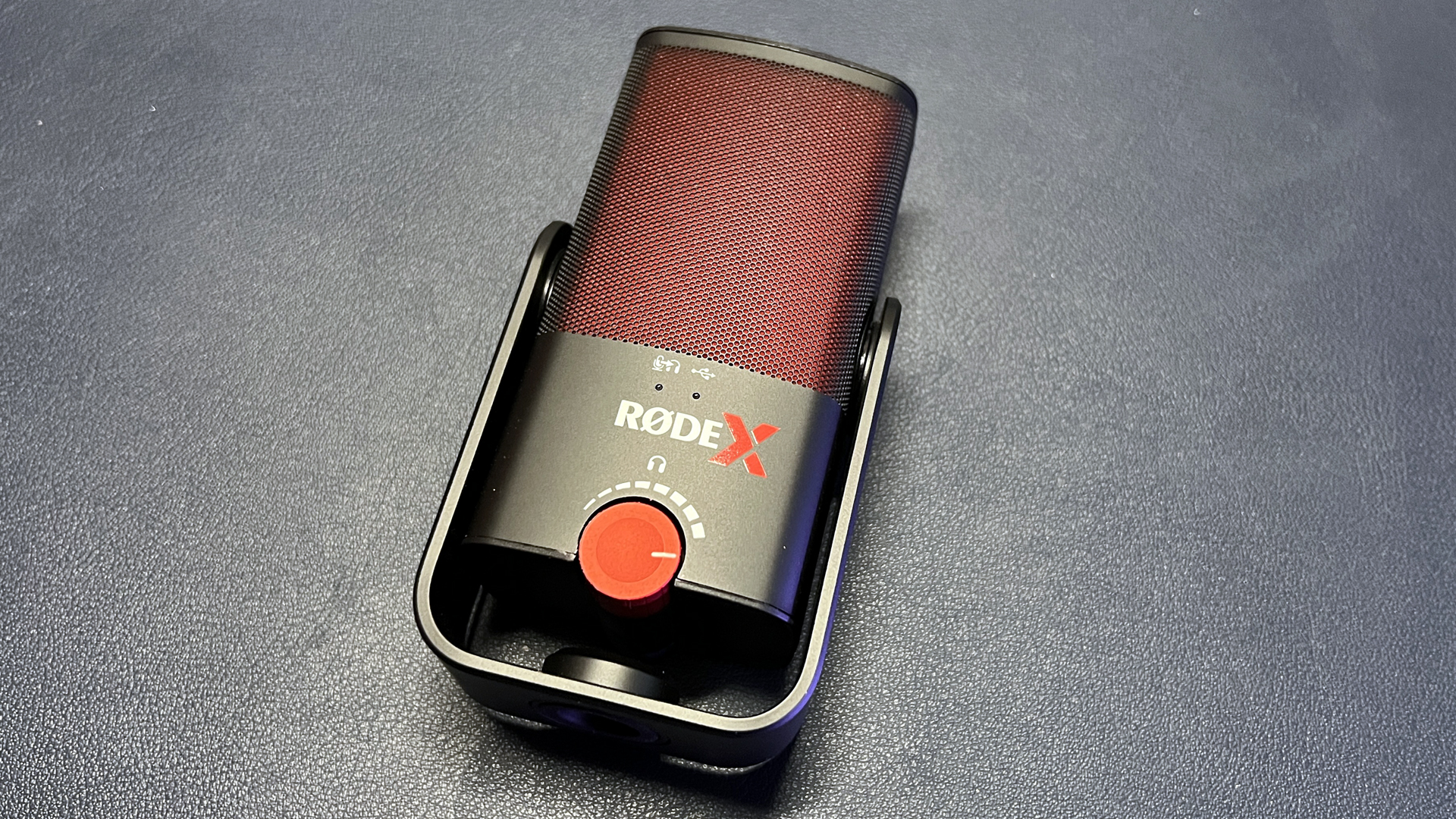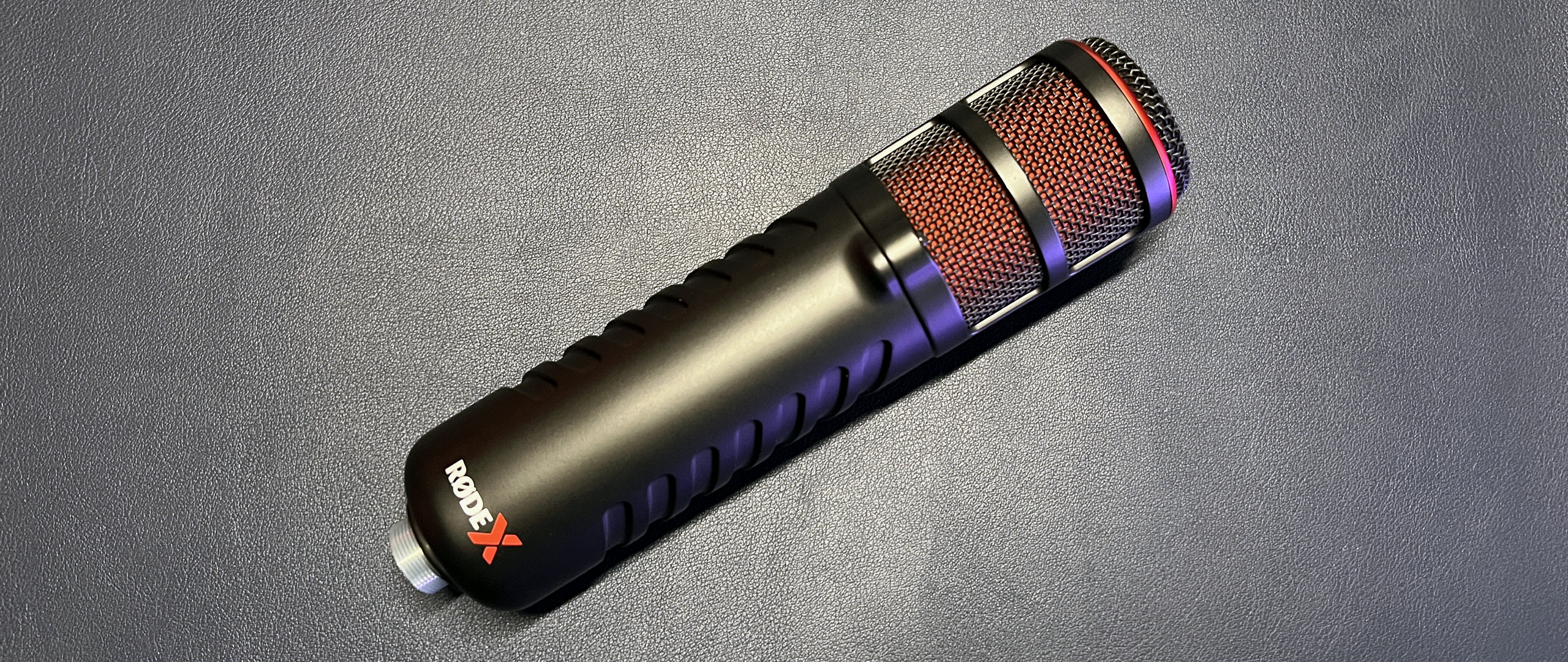Rode Launches Gaming Audio Division
You know they’re for gamers because they’re black and red.
Australian microphone brand Rode is a big name in professional audio and a growing one in tech — mostly in the podcasting sphere. While podcasting is adjacent to other forms of content creation — such as Twitch streaming and professional gaming, it’s not close enough for Rode.
Rode has decided it needs to formally enter the world of gaming peripherals, so today the company launched a new division just for streamers and gamers. The new division, Rode X, will be dedicated to developing audio solutions specifically for streamers and gamers. I’m not sure exactly what this means, as streamers and gamers seem like they’d largely face the same audio issues as podcasters and indie filmmakers, but I’ll have to reserve judgment.


Rode X launches with a modest, three-product line-up — two USB microphones and what looks like it has the potential to be a pretty impressive piece of multi-channel mixing software. (Again, I’ll reserve judgment.)
The first new mic is the XCM-50, a compact, sturdily-built condenser USB mic with a built-in 360-degree swing mount. It’s small and tank-like (it weighs just over one pound), and looks almost identical to the Rode NT-USB Mini. And that’s because it is identical, on the outside — but only on the outside, Rode says. Inside, the XCM-50 sports a DSP chip that makes it “much more powerful” than the NT-USB Mini. Rode promises this chip unlocks a “world of powerful processing” — at both launch and in the future.
In addition to extra-powerful processing, Rode says the XCM-50’s mic capsule has been “tuned” and “optimized” for streaming and gaming — but did not elaborate on what, exactly, this might mean. I did a quick side-by-side recording test with the XCM-50 and NT-USB Mini, and confirmed the mics do have different audio profiles (though it mainly seems to be volume improvement on the XCM-50 — nothing life-changing). The XCM-50 costs $149 (the NT-USB Mini costs $99), but does come bundled with Rode’s multi-functional table top Tripod 2.
The second new-ish mic is the XDM-100, which is a broadcast-style dynamic USB mic featuring “premium circuitry,” an internal DSP, and an ultra-low-noise, high-gain Revolution Preamp. (To save you the trouble — the XDM-100 is the more-than-just-reskinned Rode Podcaster USB Broadcast mic.) The XDM-100 costs $249, and is bundled with a Rode PSM1 Shock Mount and a removable pop shield.
Both the XCM-50 and the XDM-100 include unlimited, lifetime access to the third product, which is the Rode X Unify software. While I usually despise peripheral software (for good reason!), this isn’t exactly that — Unify is a standalone program, not a companion app designed to support the brand’s hardware. (That said, it did auto-download a firmware update when I plugged in the NT-USB Mini, but this may have been a coincidence.)
Get Tom's Hardware's best news and in-depth reviews, straight to your inbox.
I haven’t had much time to play with Unify, but so far it’s shaping up to be a virtual version of the Rodecaster Pro II — Rode’s popular (and pricey) multi-channel audio mixer and all-in-one podcast studio.
While Unify obviously lacks the hardware aspects of the Rodecaster Pro II, it does offer relatively simple multi-channel mixing with multiple submixing options (loosely preset for gaming/streaming), as well as access to more advanced features such as multi-channel recording. It’s not going to replace a physical piece of hardware, but Unify definitely has the potential to be a decent virtual substitute for those who aren’t quite ready to spend $700 on a Rodecaster Pro II.
Unify also lets you access advanced audio processing controls (unlocked by those powerful DSP chips) in Rode X microphones. This includes gain control, high-pass filter, compression, noise gate, and APHEX processing — all of which can be fine-tuned. Rode X Unify is free with the purchase of any Rode X product, but will also be available as a standalone subscription ($5/month or $45/year).
All three Rode X products are available now — we’ll have reviews of the XCM-50 and the XDM-100 up soon.

Sarah Jacobsson Purewal is a senior editor at Tom's Hardware covering peripherals, software, and custom builds. You can find more of her work in PCWorld, Macworld, TechHive, CNET, Gizmodo, Tom's Guide, PC Gamer, Men's Health, Men's Fitness, SHAPE, Cosmopolitan, and just about everywhere else.